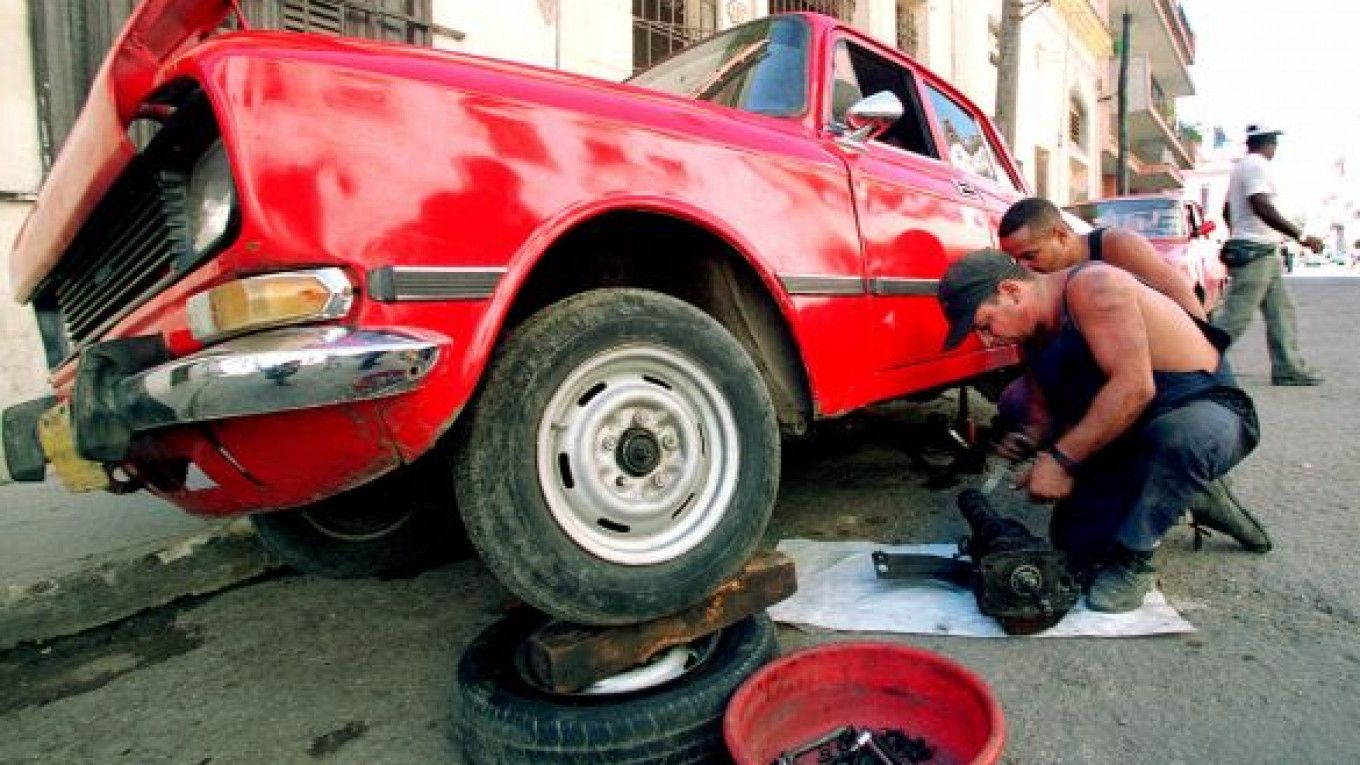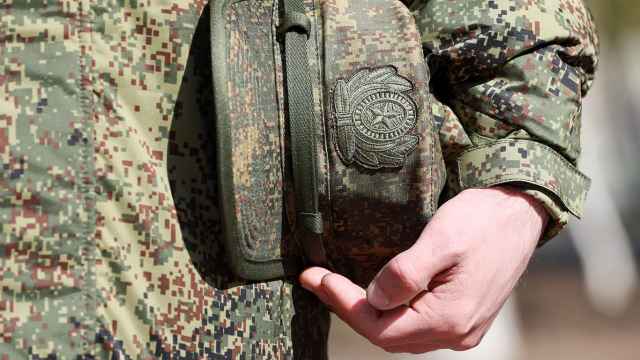HIALEAH, Florida— Somewhere on the streets of Havana is a cherry-red Lada car rebuilt almost entirely with parts that arrived from Miami in a visitor's suitcases.
A year ago, the 20-year-old Russian-made automobile — a boxy but remarkably durable model — was in dire need of repair. The door handles were rusting, the tires wearing out, the inner workings shot.
"It was in very bad condition," said Frank Torres, a Cuban-American living in Miami whose cousin owns the car back in Cuba.
Torres decided to help overhaul it. But he and his cousin either couldn't find the parts they needed in Cuba or encountered exorbitant prices.
So Torres turned to a Russian auto parts store recently opened in Hialeah, in a pocket of Miami-Dade County filled with cheap clothing stores and gas stations that sell freshly brewed cafe con leche.
There, businessman Fabian Zakharov is tapping into a niche market: Cuban-Americans, mostly recent arrivals in this country, who frequently go back to visit relatives on the island and bring food, toiletries and car parts.
In more than a year since the store opened, Zakharov said, he has sold parts for hundreds of Ladas and some Moskvich cars, the two Soviet-era vehicles that are mainstays on Cuban roads.
Despite the U.S. trade embargo that has been in place against the communist island since the early 1960s, what Zakharov and his customers are doing is legal and aboveboard. He is not exporting to Cuba; he is selling to customers in the U.S. like any other business. Those customers can send or take products to Cuba, subject to certain limits.
It's one more example of the growing economic links between the United States and Cuba, political adversaries still intricately connected by those who left and those who stayed behind.
The average Cuban worker is paid about $20 a month, so buying a new car is impossible for most. Because of that and the trade restrictions, the streets of Havana are an automotive time capsule, filled with bulbous, tail-finned Detroit models from the pre-revolution 1950s and dowdy vehicles from the Cold War.
"This store is wonderful," said Alexis Reyes, a Cuban who has been living in Miami for two years and recently bought a part for a 30-year-old Russian car his son drives back on the island. "It means those of us living here can buy the parts to maintain the cars of our family in Cuba."
Ladas began arriving in Cuba in the 1970s, when the country was closely allied with the Soviet Union. Many were doled out strategically to doctors, diplomats and sugarcane cutters who met production targets. Cubans who served on overseas missions and came back with hard currency were often allowed to buy them.
While they are slowly being supplanted by Chinese and South Korean models, Ladas are now commonly used as police cars, taxis, government and military vehicles and family cars.
Zakharov, who was born in Russia but grew up on the island, learned how to drive in one of two Ladas his parents own, a beige one that now has more than 12 more than 200,000 kilometers on it. He would drive his father, a university professor, to work.
Zakharov recalls driving around Cuba and rarely having car trouble. The only problem was the high price of gas.
"They call it the worker's car," Torres said. "Because it's tough."
It's commonly said the Lada is the perfect car for Cuba: No matter where you break down, you can immediately find a mechanic who knows how to fix it. Parts are generally easy to find but pricier than they are in Florida.
Zakharov, who immigrated to the U.S. six years ago, said the idea for the auto parts business occurred to him when a friend in Cuba needed help finding an original Lada brake pump. The only place Zakharov could locate one was Russia.
He eventually traveled to Russia and signed contracts for tons of parts. His store is now stocked with everything from screws and valves to seats and dashboards.
Their ultimate destination is most often Cuba, since in the U.S., there are very few Ladas. Even in Miami, a place with great nostalgia for all things Cuban, there appears to be only one: A Cuban barber uses it for advertisement outside his shop.
Under the Obama administration, restrictions have been lifted on the number of times Cuban-Americans can travel to visit relatives on the island.
Auto parts can be brought to Cuba under a government point system: There is a limit of 200 points per person receiving shipped items and a 1,000-point limit for those bringing items themselves on a visit. A trailer to attach to the back of a car is 100 points, while a light bulb is 20.
Some large pieces, such as engine blocks, are not allowed.
Torres bought about 80 percent of the new parts in his cousin's car from Zakharov's shop, including tires, wheels and door handles, and spent about $2,000 in all. He took most of the parts in suitcases on four trips to Cuba, paying a $1-per-pound fee.
The once-decrepit blue Lada is now shiny red with a sporty black stripe along the side.
"He had an old car," Torres said. "And now he has a new one."
A Message from The Moscow Times:
Dear readers,
We are facing unprecedented challenges. Russia's Prosecutor General's Office has designated The Moscow Times as an "undesirable" organization, criminalizing our work and putting our staff at risk of prosecution. This follows our earlier unjust labeling as a "foreign agent."
These actions are direct attempts to silence independent journalism in Russia. The authorities claim our work "discredits the decisions of the Russian leadership." We see things differently: we strive to provide accurate, unbiased reporting on Russia.
We, the journalists of The Moscow Times, refuse to be silenced. But to continue our work, we need your help.
Your support, no matter how small, makes a world of difference. If you can, please support us monthly starting from just $2. It's quick to set up, and every contribution makes a significant impact.
By supporting The Moscow Times, you're defending open, independent journalism in the face of repression. Thank you for standing with us.
Remind me later.






